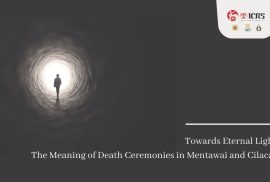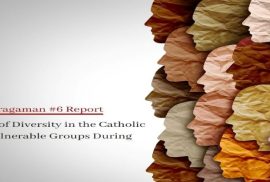Written by Jekonia Tarigan
Death and the funeral process can be a rich source of inspiration for human efforts to find meaning in suffering, eternity in finitude. Religion, culture, social structures, and the vitality of these rudimentary elements of communal life depends upon ritually putting the corpse in its place, managing the relations between the living and the dead, and providing explanations for the existence of death. Throughout human history the problem of bodily decay has had to be solved in a meaningful way—the social body cannot function without agreed upon principles to respond to the universal presence of dead bodies. [[i]] This also happens in the context of Indonesian society with every religious and ethnic group having its own rich funeral traditions, formed as part of the culture and way of life of each ethnic group. At the Kamisan Daring Forum event on June 2, 2022, which was organized by the Indonesian Consortium for Religious Studies (ICRS), the Center for Religious and Cross-cultural Studies (CRCS), Center for Religious and Democratic Studies (PUSAD) Paramadina, Satunama Foundation, Institute of Sciences Indonesia (LIPI) and several other organizations, raised a discussion entitled ‘Towards an Eternal Light: The Meaning of Death Ceremonies in Mentawai and Cilacap’. On this occasion, two speakers were present: Yosep Sagari from the Mentawai Indigenous Peoples Forum Community and Muslam Guno Waseso from the Association of Pangudi Mysticism Intisarining Rasa (Paguyuban Pikir) Cilacap, Central Java.




